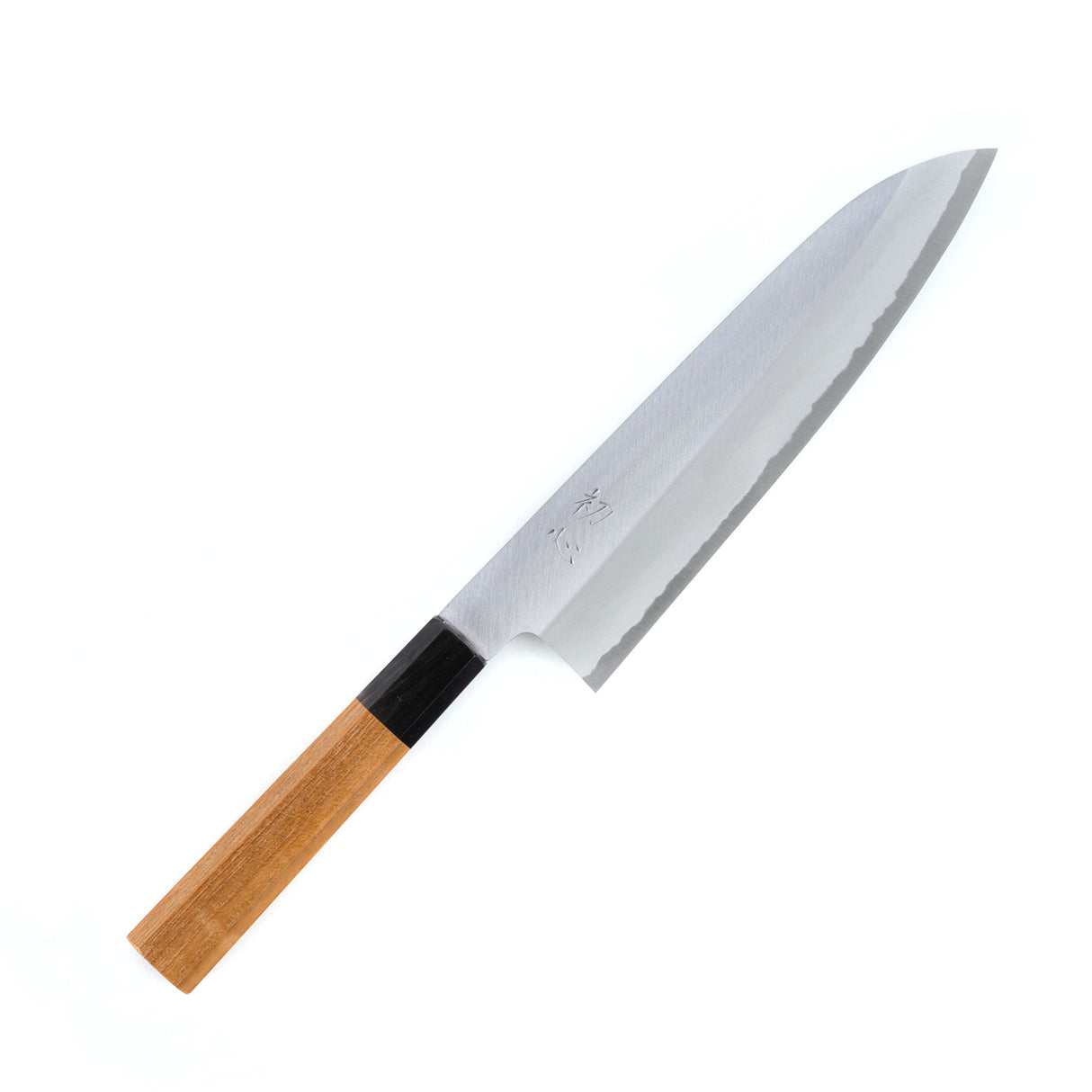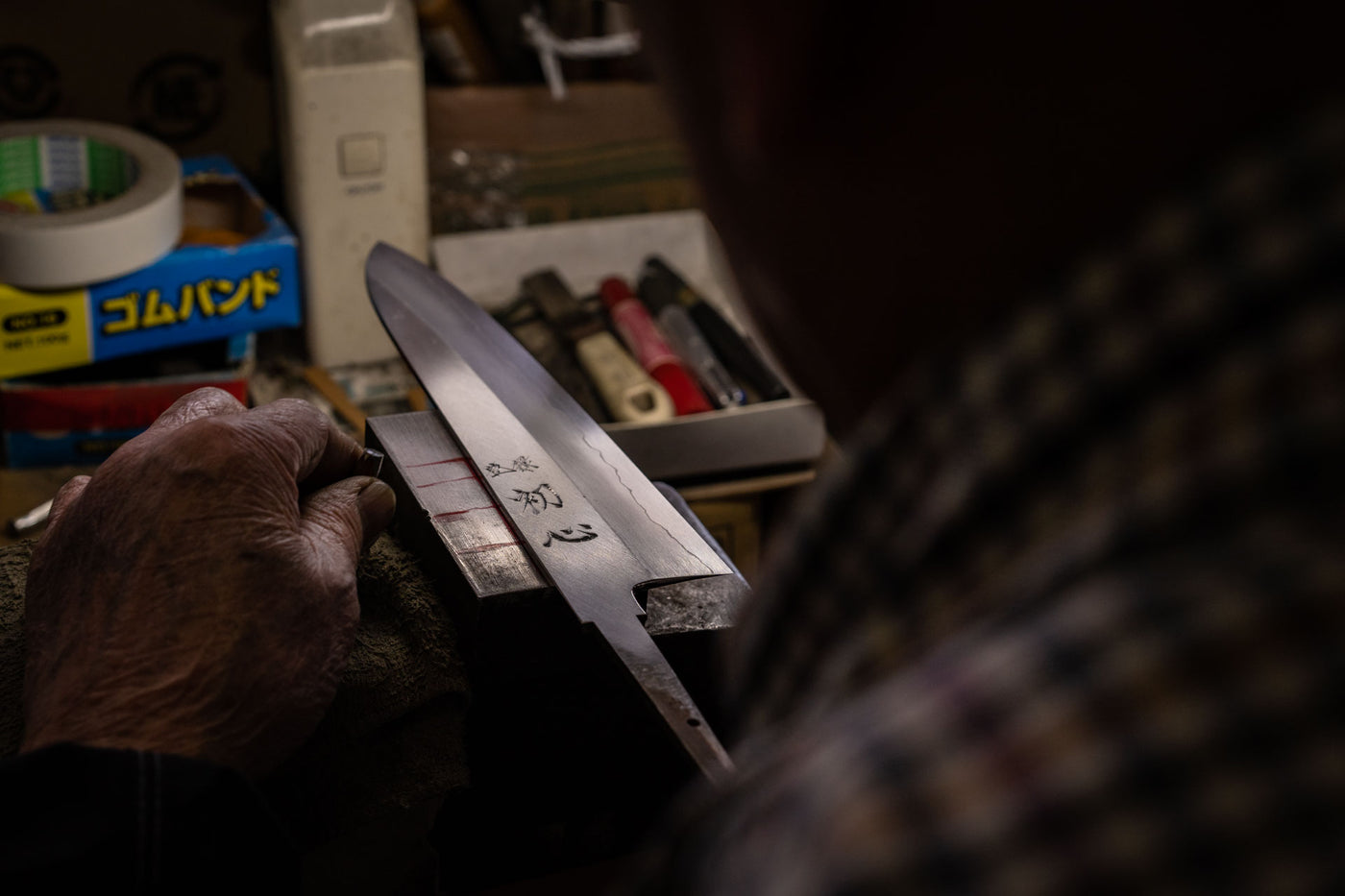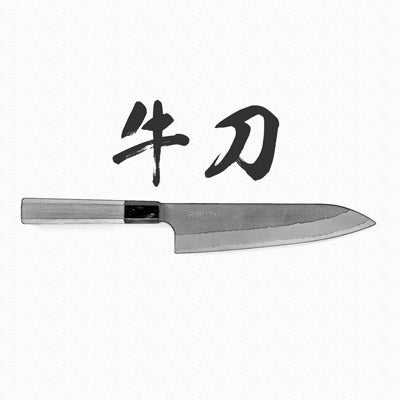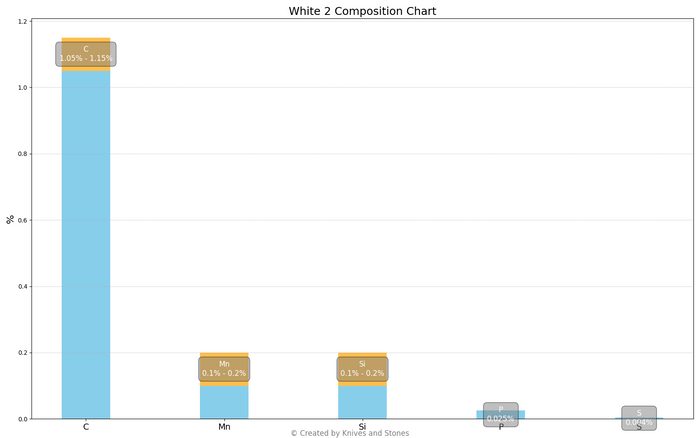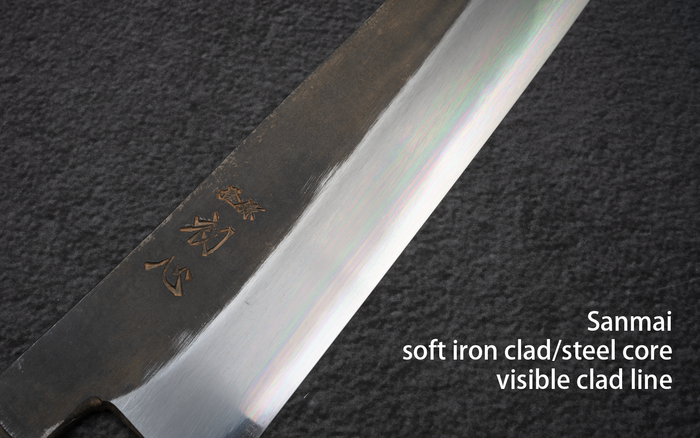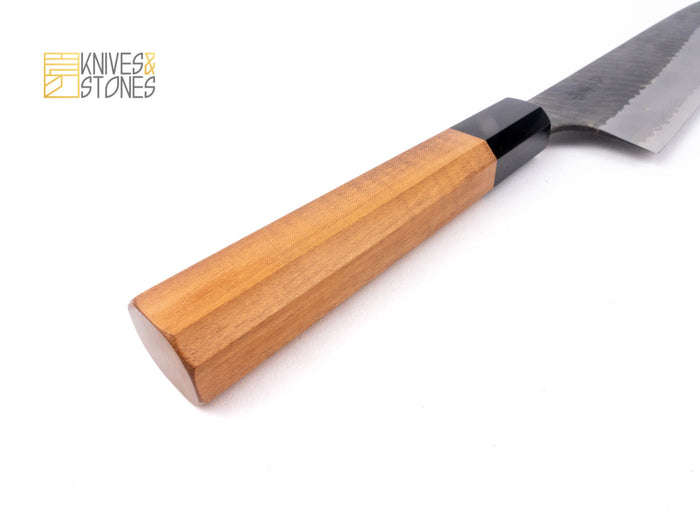Hatsukokoro (初心) White 2 Gyuto 210mm
Hatsukokoro (初心) White 2 Gyuto 210mm is backordered and will ship as soon as it is back in stock.
Pickup available at 2 Bishop St
Usually ready in 24 hours
Detailed Specifications
| Line | Hatsukokoro White 2 |
| Profile | Gyuto / Chefs Knife |
| Bevel Type | Double Bevel |
| Weight | 161 g 5.68 oz |
| Edge Length | 204 mm .8.03 inch |
| Heel Height | 50 mm .1.97 inch |
| Width @ Spine | 2.1 mm 0.08 inch |
| Width @ Mid | 1.7 mm 0.07 inch |
| Width @ 1cm from Tip | 0.9 mm 0.04 inch |
| Steel | White 2 / Shirogami #2 | Carbon |
| Blade Construction | Sanmai - Soft Iron Clad |
| Hardness (HRC) | 60 - 64 |
| Handle | Octagonal Teak Black Ferrule |
| Region | Hyogo |
| Best for |
|

| Pros | Cons |
|
|
|
Care Instruction
- Don't cut hard things! Japanese knives are brittle so bone hacking is a NO NO!
- Wash with neutral detergent after use, and wipe dry;
- Please don't wash knife with dishwasher, it will damage the wood handle;
- Be careful not to leave the knife close to a heat source for a long time;
- It is a lot more dangerous to cut with a blunt knife than a sharp knife!
- It is best to sharpen a Japanese knife regularly on a waterstone.
- Oil the (carbon) knife if storing for an extended period of time to prevent rust.

